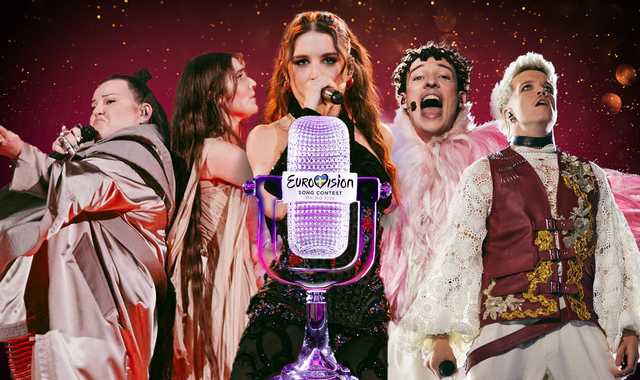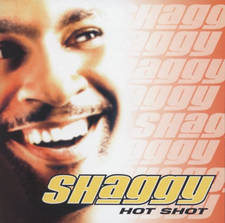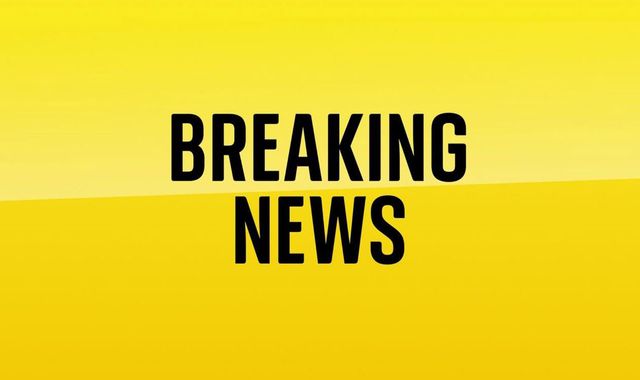Eurovision 2024: Who will win this year's show and the acts to look out for
6 May 2024, 13:39 | Updated: 6 May 2024, 16:43

The 68th Eurovision Song Contest is taking place in Malmo, Sweden, this year.
It's a spiritual homecoming of sorts with Sweden's supergroup Abba - who are the most famous band ever to come out of the contest - crowned the winners 50 years ago.
Loved and loathed in equal measure for its euro pop earworms, evocative power ballads, and eye-watering novelty acts, there's no clear frontrunner for this year's show - meaning it's all to play for.
The political elephant in the room is of course Israel's participation in light of the ongoing Gaza war, with many artists encouraged to boycott the event due to their participation.
As it stands, no act has withdrawn from the contest.
So, with 37 countries heading into the semi-finals ahead of a grand final featuring 26 songs on Saturday, who might we see take first place on the night?
The top three
Croatia is currently the country to beat, with Baby Lasagne (real name Marko Purisic) singing Rim Tim Tagi Dim.
The 28-year-old bleach-blonde frontman says the title doesn't translate as anything, other than a catchy repeated riff, but a serious theme lies beneath the full-on performance.
The song describes the tension of young Croatians leaving their homeland to seek better opportunities abroad, through the character of a farm boy who leaves his home - and his cat - to become a "city boy".
Another hot favourite is Switzerland, with Nemo singing The Code.
The 24-year-old non-binary performer draws on their childhood opera singing to pull together an impressive song which scales rap, rock, drum 'n bass and classical opera.
The message in this one is self-acceptance and the freedom for each one of us to live our lives openly and without fear of judgement.
Meanwhile, a song that's been growing in popularity is Ukraine's Teresa & Maria sung by Alonya Alonya and Jerry Heil.
Alonya, 28, is a well-known rapper in Ukraine, while Heil, 32, found fame on YouTube and appeared on the country's version of X-Factor.
Utterly hummable, the folk-inflected anti-war song paying tribute to Mother Theresa and the mother of Christ has a strong heritage and shares a songwriter with Kalush Orchestra's winning 2022 entry Stefania.
In with a chance
Also in the running is Italy with Angelina Mango's La Noia, which translates as "Boredom".
The 23-year-old told Italian rock magazine Rockol that while boredom is often seen as a negative thing, she sees it as a time for self-discovery, adding: "Between a life of highs and lows and one of boredom, I will always choose one of highs and lows, but I will always leave myself time for boredom too."
Meanwhile, Netherlands act Joost has by far the biggest earworm of the crop with Europapa - a song that will delight and infuriate in equal measure. Indeed, one early review of the song proclaimed it was so bad, it had the power to "put you off music forever".
Despite the silliness of the happy hardcore-infused pop song and the OTT nature of his shoulder-pad-enhanced performance, 26-year-old singer Joost Klein had a heartbreaking inspiration for the song - the loss of both his parents by age 13.
The track is about an orphan who travels around Europe trying to find himself, as his father taught him to believe in a Europe without borders, celebrating the national food of each nation en route.
Host country Sweden is also seen as having a chance for back-to-back wins, represented by Norwegian twin brothers Marcus and Martinus Gunnarsen performing their presumptuously titled song Unforgettable.
But Eurovision voters - made up equally of public votes and a jury of music experts - will of course be the judge of that.
Other notable mentions include France's Silmane giving a heartfelt rendition of Mon Amour and Ireland's Bambie Thug singing Doomsday Blue - a song she's described as "an electro-metal breakdown".
What about the UK?
As one of the "Big Five" (the countries that contribute the most to the EBU along with France, Germany, Spain and Italy) the UK is guaranteed a place in the final. Plus, as the host nation, Sweden gets an automatic pass too.
This year the UK are represented by ex-Years And Years star Olly Alexander singing the dance-pop track Dizzy.
Performed in a glass box full of boxers, quirky choreography and a catchy refrain have placed it in the top 10, but we're unlikely to be contenders for the top spot.
Indeed bookmakers reckon the UK are more likely to come last than nail the top spot.
Controversy this year
There have been calls on the European Broadcasting Union EBU to ban Israel from competing in the show, due to their ongoing ground offensive in Gaza.
An apolitical organisation, the EBU has said Israel will remain in the competition.
In comparison to Russia's removal from the show back in 2022 due to its invasion of Russia, the EBU say Israel's broadcaster Kan hasn't broken any rules. They say Moscow was banned for using their broadcasting channels as a tool for political propaganda multiple times.
Normally strong Eurovision contenders, four-time winners Israel is represented by 20-year-old Eden Golan, and ranks in the top 10. But how the public will vote for them in the second semi-final heat on Thursday remains to be seen.
Golan's song Hurricane was Israel's third proposed entry after contest bosses rejected their first two songs over lyrics deemed political.
More than 34,000 people have been killed, and over 78,000 have been injured in Gaza since the conflict began, according to Gaza's Hamas-led health ministry.
Israel retaliated after Hamas fighters killed more than 1,000 Israelis and took hundreds of hostages in attacks on 7 October last year.
Any other songs that have stirred up a fuss?
Spain's entry, Zorra, by husband and wife act Nebulossa, has drawn controversy because its title can be translated as an anti-female slur.
While it's been officially translated as "Vixen," it's a term used in Spain which would translate in the UK as "Bitch" or "Slut".
Lyrics include: "If I head out solo, I'm a bit of a bitch/ If I'm having fun, I'm the biggest bitch/…When I get what I want (bitch, bitch) /It's never 'cause I deserve it (bitch, bitch) … Well, she's been empowering herself, And now she's a picture-perfect bitch."
The Feminist Movement of Madrid has called for it to be withdrawn from Eurovision, saying it insults women and is not suitable for a family audience.
Singer Maria Bas has argued her lyrics describe how a woman is referred to as a "zorra" no matter what she does, and that the song highlights society's double standards, reclaiming a word that is weaponised against women only.
Spain's prime minister added his twopenneth this week, saying he liked the song and joking about how right-wing critics might have preferred the national anthem used during the Franco dictatorship as Spain's Eurovision submission.
The hard-right Vox party hit back by saying Pedro Sanchez would prefer to listen to the communist anthem The Internationale.
The Eurovision semi-finals are on Tuesday and Thursday evening, ahead of the grand final on Saturday night.
Sky News will be in Malmo with updates, a live blog, and all the biggest news from the contest as it happens.
(c) Sky News 2024: Eurovision 2024: Who will win this year's show and the acts to look out for

























